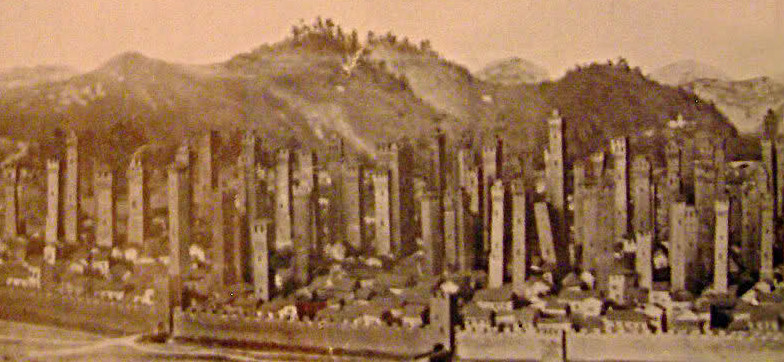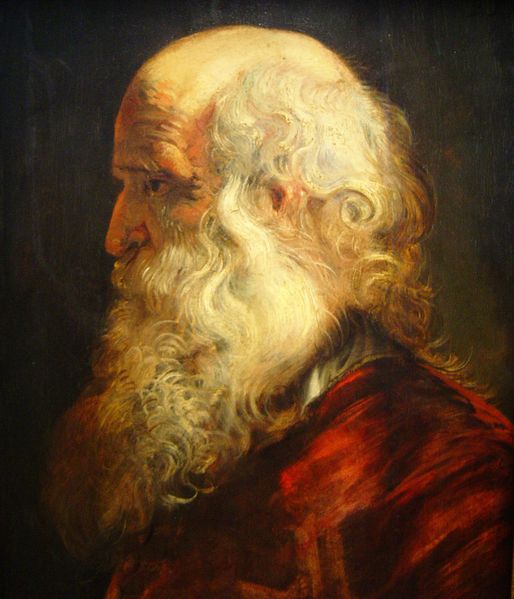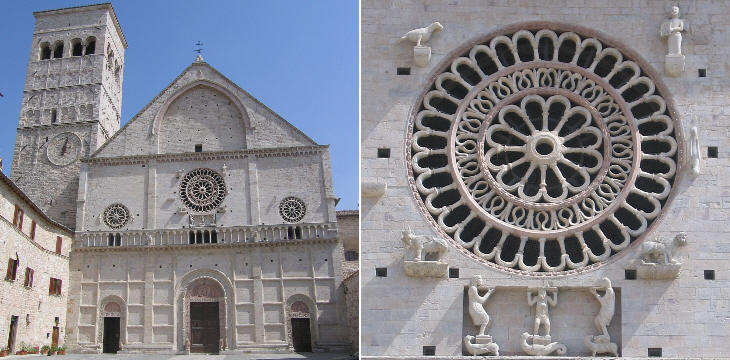Whispering, he spoke, barely missing a step as he passed. “My lord you are requested in the back.”
Alberto followed without a word. In a back storage room, beyond the kitchen, he met with Montaninus.
“Word must not spread of our meeting. I know yesterday the commune approached you. Bonbarone, egotistical in his pursuit to be a commune leader, is followed everywhere he pollutes. Do not trust the man. Once, he was a noble and now he manipulates for leadership within the commune. Arrogance, wealth and power drive the man. Integrity and loyalty mean nothing to the man. A self-absorbed manipulator to the highest degree, the man seeks only himself. He is an authority onto himself, answering to nobody. Pietro Bernardone, I do not know, except the man is a peasant who has become filthy rich, one of too many. A son was just born to him. His French wife is difficult to forget due to her elegant beauty. Pietro talks too much and takes himself too serious. He is a weak harmless man of poor breeding who now needs to be harmed. It did not have to be this way. It is of his choosing. A man who speaks too much regarding political matters is always sure to make grave enemies. He will get himself killed. The larger painting he cannot see; truth exists beyond his selfish limited point of view. He honestly knows not the depth of the games he involves himself within. He is a pawn, a blister upon authentic authority. I was there watching when you visited Pietro’s shop. I was disguised. None knew of my presence. Did you observe how the mob works, moving with every word of the entertaining wealthy merchant? Individuals seeking the approval of one another, huddling together as they form a crowd similar to the one that watched Our Lord crucified upon the cross, urging each other onward into greater perversity, all for the sake of attaining worldly goods, no concern with disrupting the societal will of God. I halted myself from spitting upon the floor in disgust as I knew it would reveal my true intent. The tongue of that merchant should be removed. Christ, the Divine becoming human, stood as an individual in the face of the mob. In imitation of Christ, every individual is called to stand on his own before God. God will demand accountability if we spent our lives usurping His will. There is no huddling before the Almighty, no cowering with friends and neighbors in order to exercise tainted will. Excuses and explanations will not suffice. There is not the wicked tongue of those willing to talk too much to guide.”
Accumulated words burst forth from Montaninus, exposing a frustrated, angry undercurrent. The man needed to speak. Rage filled his mind, fouling his heart. A silent one like Alberto was an ideal audience for one needing to unload.
“The perversion of the natural order is the ideology of today; individual simplicity being replaced by grand dramas. Divine will shit upon. Every man feels his life must be an adventure equal to Ulysses, while groveling behind the protection of the city-state. Every man wants to be a hero, while recoiling from sacrifice and threat. The common man is no longer content with his lot, spoiled children running about constantly screaming demented dreams. Like Satan’s dissatisfaction with heaven, the peasant demands to rule, demands to be the center of the universe. The more delusional he grows, the more his disease spreads. His sickness is not happy unless it is infecting others. Intent upon destroying the tradition of noble rule, he sees equalization as a process of destruction. To lower nobility is to raise himself. However, equalization is devastation if it is a process of depressing. It is enlightenment if it is a process of elevating. Only Christ is able to attain such a miraculous wonder. The nobles carry forth the message of Christ. The commune squawks the words of sinful man, the mindset of Cain, the murderer of his nobler brother. The lese majesty the commune calls into being will only lead to misery for many, death for too many. We need you Alberto. Satan has blessed the commune with monetary wealth, cursing the sanctity of noblemen. Satan fights fiercely against the Lords. With gifts to the commune, he curses those truly destined for power and authority. We have tradition, honor, integrity, and God on our side, however with the passing of every day these attributes become less popular. The commune spreads soul sickness; immorality, wickedness and vice a daily undertaking. Witness all the drunks clamoring about the streets of Assisi. Disdaining the veracity of poverty, worshiping materialism and worldliness, placing all hope in the rule of self-will, the commune attracts men as a whores seduce drunkards.”
As usual, Alberto was not speaking. Montaninus knew the ways of the tall one. As commander for the German Barbarossa, he nicknamed Alberto, Man Tower for the many, Fierceness of Silence due to his refusal to share his thoughts, to drape himself with a cloak of mystery through the lack of expression. Montaninus’ words were not meant for immediate victory, rather the sowing of seed. There was an ace card he reserved. For the time being, he simply provided Fierceness of Silence information to supplement the events to come. The old man of the castle would close the case. Arraignments completed, Alberto would be taken to his private noble castle hidden upon Mount Subasio. Montaninus counted on his premonitions. He saw Alberto as a mystic in an unusual manner, a strong individual not persuaded by the thronging masses, a man unto Christ. His path of perfection be the one of violence, the true calling of the knight of Christ. Nobility arose from such vigor. The blessing of being endowed with distinct abilities above the peasant marked Alberto. A presence announced the fact. Montaninus believed he possessed insight into Alberto from their days of battle.
Stern upon life, Alberto critiqued the world. He demanded perfection, instinctually comprehending paths to perfection existed. Even if perfection could not be attained, the path must be pursued. If perfection did not exist in the mind then annihilation was justifiable. If order was not attainable chaos must be inflicted. If ignorance paraded as wisdom, silence must be maintained as violence cleansed the farce. Alberto was a man of absolute sternness. He would understand the mystic man of the mountain known to the world as Enzio. Even withdrawing from the world, Montaninus sensed Fierceness of Silence cultivated this unsympathetic challenging sensibility. He held no esteem for the softer easier path, those treading through life immersed within mediocrity. He was as hard upon himself as he was the world, thus the need for solitary weeping. During military days, the tall one gained a reputation for insanity due to his propensity to wander away from camp, perching upon a high point, watching the surrounding lands, while shedding silent tears. A man on guard, watching for approaching enemies, he sat beneath the stars crying.
Alberto’s abilities and uniqueness Montaninus credited for the tall ones excessive demands upon life. It took intelligence to realize the seriousness of life leading to death, the gateway to eternity. Tragedy scarred the actions of the complex man, the consequence bursting forth as silence. Many fell under his hand. The tall one loathed himself, yet accepted himself for the loathing. Unknowingly, he saw it as a beginning. Pride could not blossom where it was smashed beyond demand, an absolute lack of love purging. Believing sanity rested within the rejecting of life, the tall one started with himself, however the self-negation was negated by the continuum of time. Within the dismantling, a beginning is not sustaining, a beginning demands progress, a destination aimed for. One breath led to another producing further experience, memories accumulating, days adding up to years. Distant from the world, unattached with a powerful knightly reputation, he could not help observing himself with admiration at times. Pride sprouted. He knew of his legend. His reputation he could not deny. He could not prevent the right hand from knowing the efforts of the left. Underneath the extreme violence in silence, accepting failure, he understood he could not escape himself through his rampaging.
The convolutions of the tall one went beyond reasoning, thus the constant need for cleansing tears. Internally, the man was tied in knots; emotions, experiences, tendencies, psychology, beliefs, suspicions, accusations, self-incriminations, devastations, inflictions—a life unbalanced, everything wound around each other, all becoming entwined, tangled, and jumbled. The more breathes he took, the more the knots pulled upon themselves creating greater entanglement. Hints of verisimilitude, a sense of truth, could not be reached. A call bellowed forth for an undoer of knots. Man Tower scurried amongst holy outcasts, seeking their companionship. Montaninus attained the illuminating insight that, unknown possibly to himself, Man Tower pursued a holy mission. The tall one sought out those who shunned society in the name of sacred renunciation. Peculiar in pursuit, those seeking solitary refuge he shadowed. Hermits he hunted for company. Man Tower’s treatment of reputed austere religious men proved harsh. If he judged them sincere he showed them grace, spending time with them. If he found them corrupt or insane he offered death as a reality, a permanent mask presented. Montaninus recalled that whenever the archbishop of Mainz spoke of religious matters, the tall one separated, or at least turned his back. Montaninus, an admirer of the archbishop, feared Alberto would kill the murderous elevated man of church hierarchy due to the ecclesiastic’s corrupt behavior.
Often, while fighting next to him, Montaninus contemplated the tall one. It never ceased to amaze him the things the man would accomplish in battle; the impossible no further than an action away. Berserker, he sought out the strongest opponent, even if they fled he pursued. Upon a crowded battlefield, the man could create a path of clearance. Opponents, recognizing him, would concede to his annihilating ways. In the same diligent manner, he intellectually tested the consecrated through silent observation, seeking without explanation. If word of a hermit reached camp, he was sure to seek out the holy man. He treated no other men in such a manner. The holy men developed a knowing of his existence, upon his arriving entertaining the silent one of wrath. Ordained in his armor, he heeded no mind to the worldly, while conceding to those dedicated to the spiritual a perverse kinship.
Montaninus reasoned the tall one accepted hermits because, similar to himself, hermits rejected the world. At heart, they shared a philosophy; the dominator of war and the hermit being of a similar foreign mind to the world of normality and sheltered sensibility. The hermit opting for prayer, worshipped God through austere disciplined daily living. The dominator of war, a criminal in a greater sense, outside of society, could never prosper to the point of self-sufficiency nor normalcy. Relying upon his deviant ways to prosper in the arena of death, he rendered himself useless in the world of practicality. His estrangement exhausted, leading to misery, demanding a superior subjective mindset. He objectively rejected, cursed and judged. Sometimes becoming a prisoner meant a blessing. In desolation, earnest prayer would naturally evolve. The only genuine refuge a clever criminal mind could embrace. Where else is there to go? Deeper and deeper into vices? Possibly alcoholism or sexual perversion. Addiction? No. The lashing of vices would only drive a man of ultimate violence, of severe discipline, into insanity, further into the realm of desperation, penetratingly isolating. Confronting death he needed to believe he was creating a clear mind. Permanency, lasting sanctified solace, existed only within entreaty, supplication, to the Divine; the quieting of self. Wisdom, beyond knowledge, the very nature of the hermit life, became the only true refuge to the one who flourished only in war. He found space in the company of a hermit, a place for thoughts to terminate.
Convinced Alberto maintained his silence and the inflicting of terror through warfare based upon such reasoning, Montaninus sought him out. He perceived holy men chose to flee society, seeking the sanctity of withdrawn places, with a respect to nobility. They did not see the overturning of the natural order in order to seek the supernatural. The unnatural path, normal amongst the commune, was the mindless acceptance of life in pursuit of only the materialistic and worldly; the average struggle just to survive fertilized by the delusional mind seeking ascension. Jealousy and greed drove such depraved beings. Corruption was the unredeemable consequence. The pathetic social grasping for momentary gratification, while superficially, and lacking sincere obedience to the church, corrupt or not—it didn’t matter, unambitiously declaring loyalty to a supreme living God and His only begotten Son, while using every excuse within grasp to whine away offenses, clinging to vanity, and shallow self-righteousness; hate permeating just below the surface, poverty rotting, the rabble squandered the gift of life, creating their own hierarchies within their nonsense. To reject nobility insulted God’s creation. God removed from the role of creator. The common man taking center stage as actor and director. The commune placed its petty interests and desires before all things. Montaninus despised the commune with a bitter heart. A good man needs a criminal to justify his life. A lord needs squabbling peasants to be a true lord. The good woman needs a whore to see herself as a true lady in standing. Good men and good women need the eyes of others in order to live superiorly. The delusional, reinforcing, must believe, undercutting, the world is filled with fools Montaninus rose above all, embracing what he was convinced was the true ways of a noble man of honor and rank. It was the miserable ways of the deplorable commune, a stench in the nose of the strong, the God ordained.
Positive Alberto would understand, Montaninus wanted him to meet the old descendant of royalty, Enzio the Wise, the owner of the hidden castle of Mount Subasio. Enzio, the former maintainer of a military tower destroyed years ago. The elderly wise man now lived alone amidst a mountain. Matured, the elder lived a solitary life in a private lesser edifice, a large home constructed in the form of a castle. The structure dominated by a modest sized northwest tower stealthily constructed within the forested ascent of Subasio. Self-sufficient, Enzio managed an independent life, including gardening, cooking, cleaning, while creating artwork, mainly carvings in stone performed upon living walls. No taller than twenty feet, the castle/home, as a whole, rested hidden amongst hundred year old trees. The one entry roadway branched off from a leading highway protected by a neighboring castle manned by Montaninus’ former coalition. One could pass by the valley splitting time after time before finally noticing the hidden path branching off up to the mountain. The surrounding forest, nearly impenetrable with sheer rocky ascents, was rumored to be haunted with demons wandering about seeking the devouring of souls. A pack of ferocious wolves were indeed above rumor, existing as a known feared fact. The strong pack of wolves prowling about as vicious mountain predators were a plague to local sheepherders.
“I want none to see us leave Assisi together. You will hide in the wagon. The commune will be ignorant of our gathering. The man we go to see most not become common knowledge”.
Alberto did not refuse. He did not answer.
“There will be two more riding with you, blindfolded women. The elder is wise, yet foolish with these young ones. I would put them to the sword if I could, yet he proclaims love for them, catering to their every demand. I have attempted everything thing to cease their visits, yet he persists. I will be up front. When I stick my head in the back and call for you we have arrived. Stay clear of the stench and influence of those whores. They are nothing but abusers.”
Montaninus forcefully guided the blindfolded young women into the wagon. Alberto recognized them. It was the squawking prostitutes from the tavern. Pieces began to fit together. The old man they were complaining about was the man he was destined to visit. He relaxed into the travel. It was a good omen that moments were coalescing. The surprise arising from the appearance of the women fading, he managed to nap.
“Alberto we have arrived. The whores are already inside.” Montaninus woke the sleeping giant.





Recent Comments